This past summer, nine undergraduate students visiting from institutions around the country spent 10 weeks conducting research at the University of Florida (UF) on the topic of Secure, Accessible, and Sustainable Transportation (SAST).
Through an NSF Research Experiences for Undergraduates (REU) Site grant, the undergraduate students worked alongside UF faculty and graduate student researchers at the Warren B. Nelms Institute for the Connected World and the University of Florida Transportation Institute (UFTI) on highly-relevant and timely topics surrounding transportation. The NSF REU program supports active research participation by undergraduate students in high-impact research areas. REU projects involve students in meaningful ways in ongoing research projects and give them the opportunity to thoroughly explore a research topic early on in their academic career.
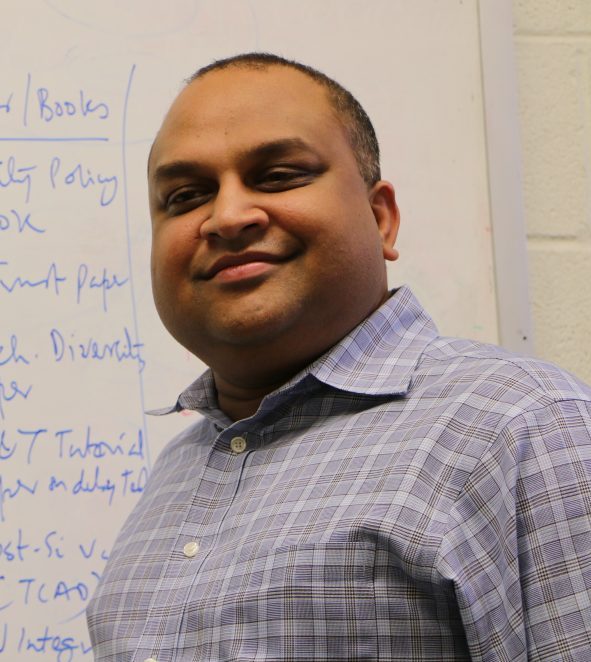
The SAST REU Site is led by Dr. Sandip Ray, Endowed IoT Term Professor in the Department of Electrical and Computer Engineering.
This particular REU Site is unique because it was an interdisciplinary and collaborative effort between multiple departments at UF. Additional faculty mentors in the project were Dr. Swarup Bhunia (ECE, Director of Warren B. Nelms Institute for the Connected World), Dr. Eakta Jain (CISE), Dr. Janise McNair (ECE), Dr. Srinivasan Sivaramakrishnan (Civil & Coastal Engineering, Associate Director of UF Transportation Institute), and Dr. Wanli Xing (School of Teaching and Learning).
This Summer’s undergraduate cohort was a diverse group of students from Bryn Mawr College, Clemson University, Colby College, University of California Berkeley, University of Florida, University of Maryland Baltimore County, University of Southern California, and University of Texas at San Antonio. Only nine out of approximately 90 applications were accepted into this competitive program.
“This was a great program. We had motivated and driven students who enriched our labs over summer,” said Dr. Jain.
Summer 2023 was the first iteration of the REU Site on Secure, Accessible, and Sustainable Transportation, but the project’s funding will cover at least two additional years of summer cohorts in 2024 and 2025.
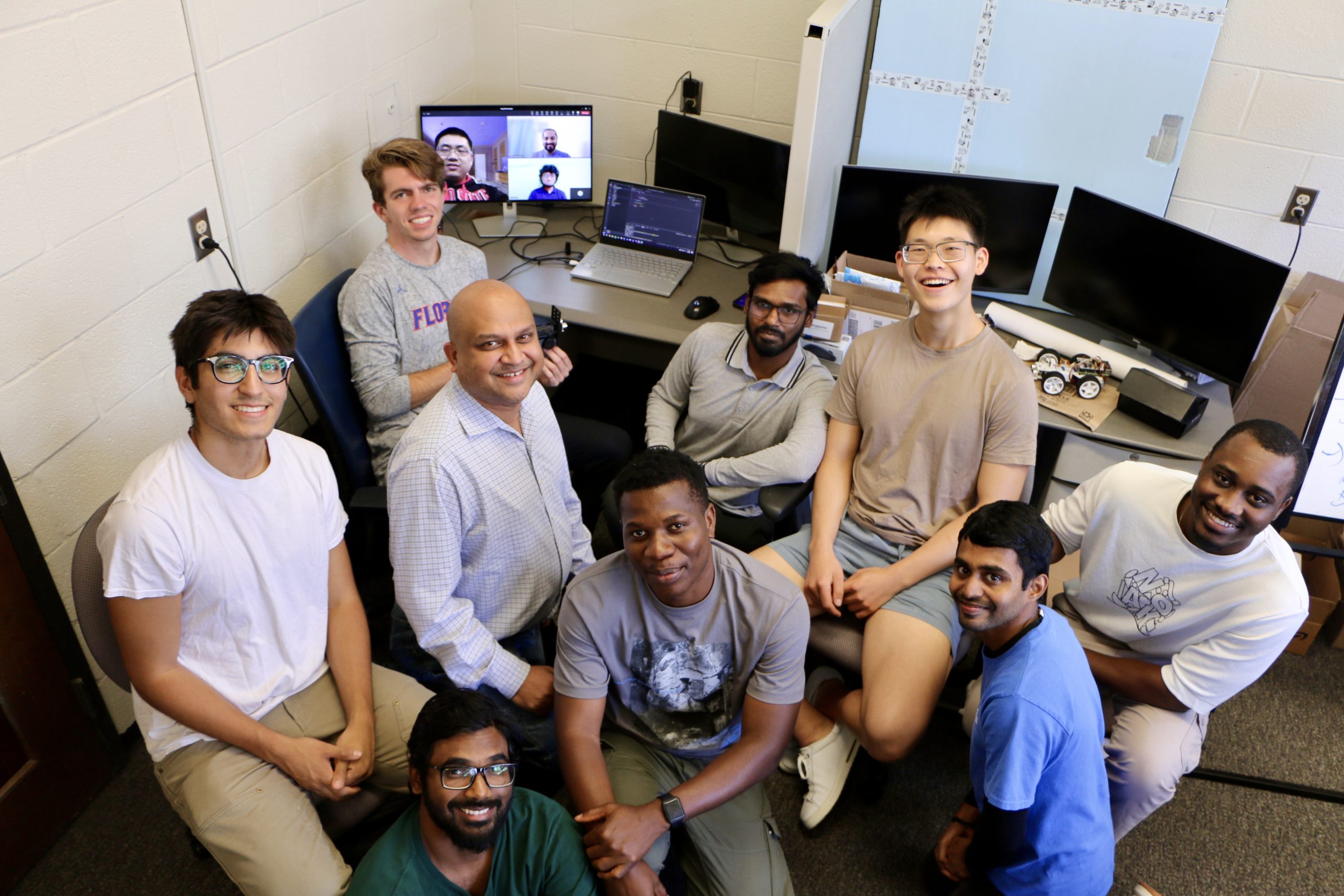
Research on Secure, Accessible, and Sustainable Transportation
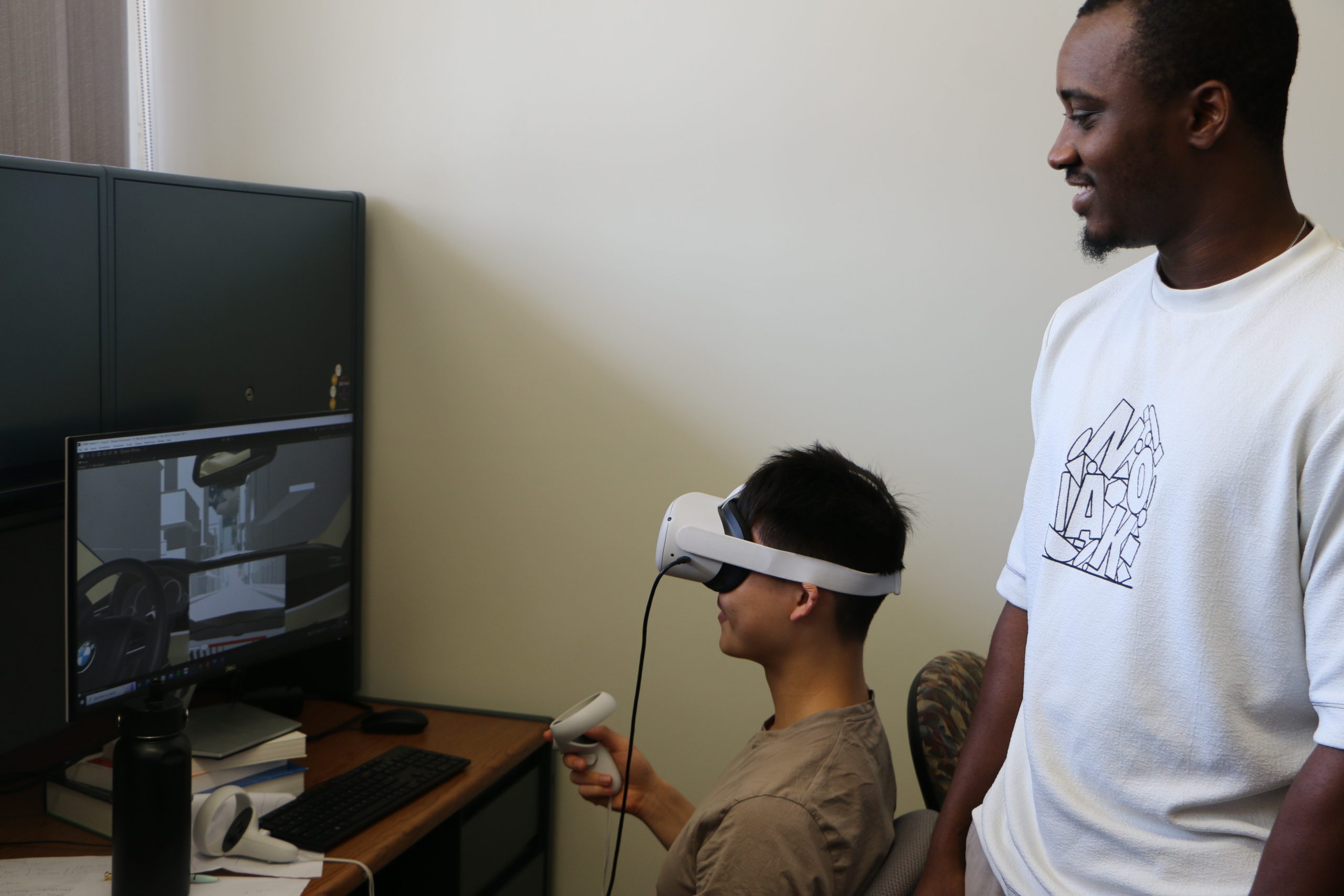
Recent years are seeing a transformative and rapid push towards autonomy in the transportation systems, driven by explosive infusion of electronics, sensors, and software. Autonomous transportation holds the promise of dramatically improving transportation systems by reducing and eventually eliminating human errors and inefficiencies. However, it has resulted in new and challenging research questions on effective use of autonomy to achieve security, accessibility, and sustainability.
“Autonomous vehicles are going to come, and things are going to change drastically. But that does bring in a lot of issues, and we need to be able to trust the electronics and software to drive safely,” said Dr. Ray.
The following are some representative challenges that this research attempts to address.
- How can the electronics and software in transportation systems be protected against cyber-attacks?
- How can autonomy cater to persons with disabilities that currently depend on a human operator for a variety of transportation needs?
- How can we trust autonomous transportation to operate safely?
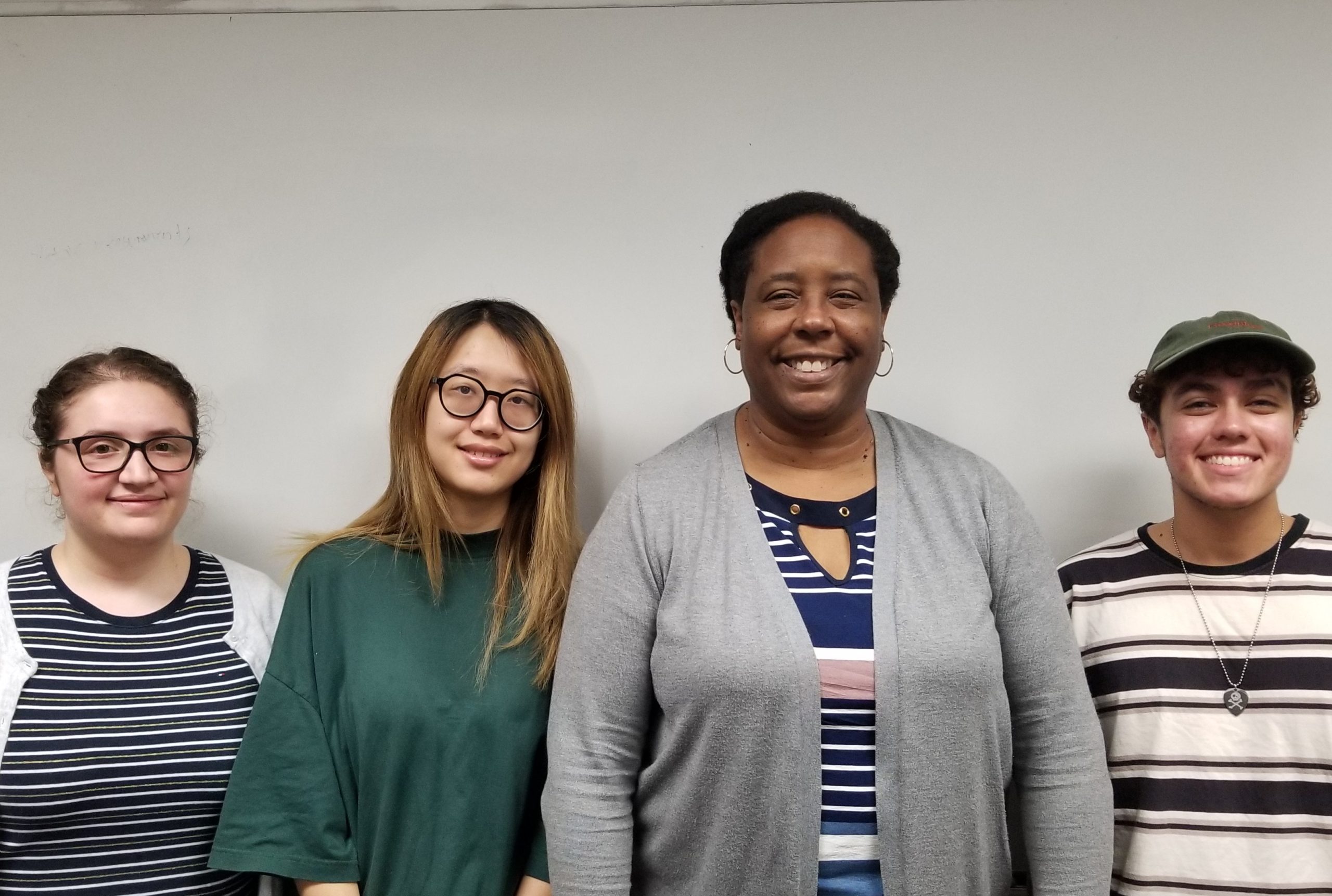
Professor McNair’s Wireless And Mobile (WAM) Systems Lab hosted 4 undergraduate students this summer. Pictured from left are Elsa Osmani (UF University Scholar), Cecilia Zhang (SAST REU), Dr. McNair (faculty mentor), and Lorenz Carvajal (UF ECE ITIAS Scholar). Joseph Tebou (SAST REU) is not pictured. - How can we exploit autonomy to minimize impact of transportation on our environment?
Participants in the REU Site performed high-impact research exploring these and other research questions and creating novel solutions to challenges that face transportation today, such as intersection management, electric vehicle charging, secure data transfer, and autonomous vehicle platooning.
In Dr. McNair’s Wireless And Mobile (WAM) Systems Lab, the SAST REU students’ project was to create a sensor data delivery system that collects sensor data, uploads the data wirelessly from the field to the cloud, and then stores the data in a cloud service for real-time access and data analytics.
Workforce Development
One of the key problems in the automotive industry is that new and novel solutions are needed to address the security, accessibility, and sustainability challenges that are arising with new autonomous vehicle technology. However, it’s difficult to find a well-trained workforce that can develop these solutions.
“Our entire goal is to try and find cohorts of promising students from across the United States and see if we can get them interested in a career in transportation, and particularly research in this area, so that they understand what is involved in building new technologies,” said Dr. Ray. “Our goal is to try to expose as many students to this topic area as possible.”
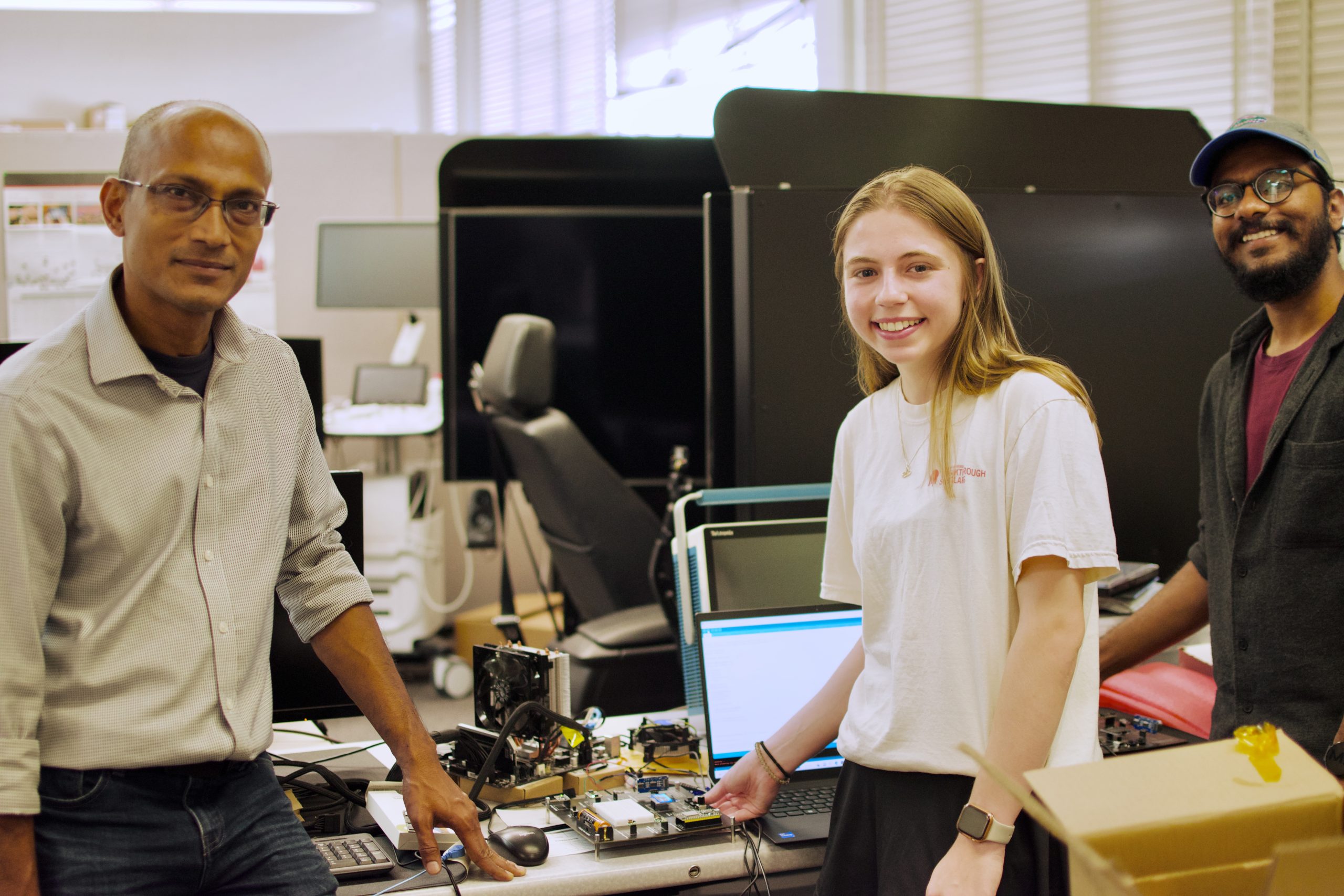
In addition to training in foundational research skills through hands-on experience, the SAST REU Site encouraged growth beyond students’ technical skills. Professional engagement and development were emphasized, as well as technical communication and dissemination of research results through oral and written communications. Additionally, the program compensated students for their work through stipends, making this experience more accessible to all students.
Graduate student mentors also benefitted from the REU program. Rohan Reddy Kalavakonda, a graduate student in ECE advised by Dr. Bhunia, appreciated the opportunity to mentor undergraduate students as he prepares for his own future career in academia.
“As graduate mentors guiding the incoming generation of students into research, the REU program is an excellent opportunity to refine our ability to communicate complex concepts while fostering curiosity and nurturing a passion for research,” Rohan said. “For me as a graduate student aiming to have a dedicated and meaningful career in academia, this opportunity is a reminder of our responsibility in not just sharing knowledge but also cultivating an ethical, collaborative, and inclusive research environment.”